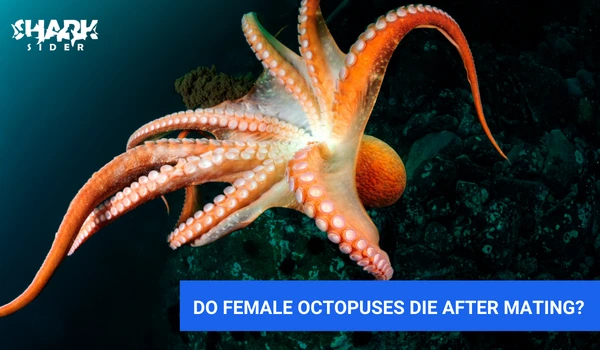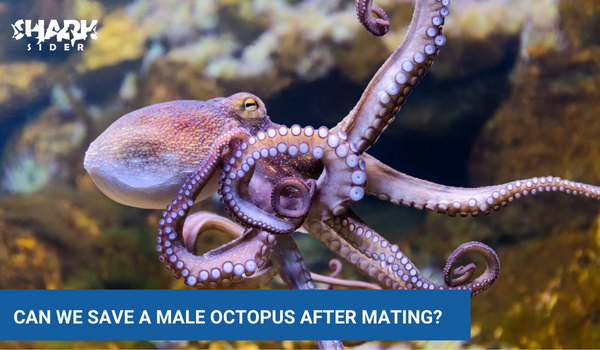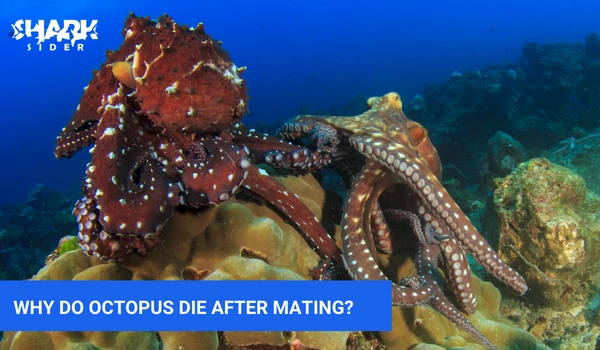For the curious and inquisitive reader who has ever wondered about unexpected animal behavior, this post will explore one of the strangest phenomenons in nature: why do octopus die after mating? From a logical perspective, dying right after mating seems particularly ill-suited to successful species propagation; however, there must be a good reason for it. This blog post will delve into the scientific theory surrounding this peculiar phenomenon and explain how it could actually help with the continued survival of octopuses.
Why do octopus die after mating?
The first thing to note is that octopuses are a unique species. They have highly adapted reproductive systems that rely on a single reproductive event rather than multiple matings, which makes them more vulnerable to extinction than other animals. When an octopus mates, it expends large amounts of energy in the process and often fails to recover after the mating season ends. This explains why some species of octopuses only mate once in their lifetime; they don’t have enough energy left for any further reproduction. Furthermore, since octopuses lay fewer eggs than other species and need more time to hatch, any eggs laid during this final mating session may not be viable due to a lack of sufficient energy reserves.
Another theory suggests that mating can lead to a depletion of the body’s resources, leading to death from exhaustion. During mating season, octopuses use up most of their energy stores and fail to replenish them in time for the next reproductive event. This could be due to an inability or unwillingness to search for food while mating or because they devote too much energy towards reproduction instead of eating.
Finally, there is some evidence that points towards an evolutionary benefit to dying after mating: it ensures that only the strongest males are able to reproduce and pass on their genes. Since male octopuses have limited reproductive possibilities, the ones that survive long enough can ensure genetic diversity within their species by mating with different females. By this logic, those who die soon after mating are more likely to have transmitted the strongest genes, allowing the species to maintain its strength and adaptability.
What is senescence in octopus?
Senescence is the process of aging, in which organisms gradually lose fertility or other aspects of their biological functions. In some octopus species, senescence may be an important factor in explaining why they die after mating. For example, female octopuses can become infertile due to age and may not have enough energy left to care for their eggs once they are laid. This could explain why older females often die shortly after mating, as they no longer possess the resources necessary for successful reproduction.
Do female octopuses die after mating?

Though there is some evidence that female octopuses may die after mating, it’s unclear to what extent this phenomenon occurs. Since female octopuses have fewer reproductive opportunities than males and can become infertile due to age, it’s possible that they are more likely than males to die shortly after mating. However, further research is needed in order to verify whether this type of mortality occurs in octopus species.
How long does an octopus live after mating?
The length of time an octopus lives after mating depends on the species, age, and health of the individual. For example, a male octopus may live several weeks or even months after mating while a female might only survive for a few days or hours. Ultimately, it’s impossible to predict how long exactly any given octopus will live after mating.
What happens if you save a male octopus after mating?

If a male octopus is saved after mating, it may be able to continue living and potentially mate again in the future. However, this process of survival depends on the individual’s health before and after mating as well as any environmental factors that could threaten its life span. It’s important to note that the continued survival of a male octopus after mating is not guaranteed, and careful attention should be paid to the individual’s health in order to ensure it remains healthy.
Conclusion
In conclusion, the phenomenon of octopuses dying after mating is still largely unexplained. While there are theories that suggest why this may occur, it’s ultimately difficult to know for sure. Further research is needed in order to better understand the scientific theory surrounding this peculiar phenomenon and explain how it contributes to the survival of octopus species. As for saving a male after mating, it’s possible but not guaranteed, and special attention should be paid to its health in order to ensure its continued survival.

